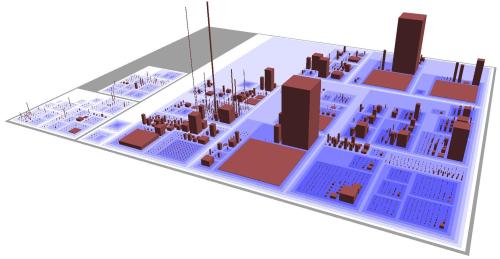status
Youre not logged in ... Login
menu
search
calendar
| February 2026 | ||||||
|---|---|---|---|---|---|---|
| Sun | Mon | Tue | Wed | Thu | Fri | Sat |
| 1 | 2 | 3 | 4 | 5 | 6 | 7 |
| 8 | 9 | 10 | 11 | 12 | 13 | 14 |
| 15 | 16 | 17 | 18 | 19 | 20 | 21 |
| 22 | 23 | 24 | 25 | 26 | 27 | 28 |
| November | ||||||
recent updates
Goodbye Antville, hello Blogspot Its
time to move! Antville is a symatic community but I'm...
time to move! Antville is a symatic community but I'm...
by rolandk (11/8/08, 4:00 PM)
SOA at Deutsche Post Deutsche
Post is THE company which implemented SOA the first time,...
Post is THE company which implemented SOA the first time,...
by rolandk (11/4/08, 2:59 PM)
The model and the architecture
Hypothesis: Since infrastucture code is not part of the domain...
Hypothesis: Since infrastucture code is not part of the domain...
by rolandk (10/17/08, 1:24 PM)
Hope joost does it right
this time It's the content, stupid http://www.joost.com/home?playNow=33l83ke#id=33l83ke
this time It's the content, stupid http://www.joost.com/home?playNow=33l83ke#id=33l83ke
by rolandk (10/14/08, 1:00 PM)
Siri Bringing AI to the
interface. I'm sceptical http://news.cnet.com/8301-17939_109-10065136-2.html
interface. I'm sceptical http://news.cnet.com/8301-17939_109-10065136-2.html
by rolandk (10/14/08, 9:47 AM)
Generative Sequencing is what MDSD
gives to the Pattern Movement Look what I've found: A...
gives to the Pattern Movement Look what I've found: A...
by rolandk (10/12/08, 12:48 PM)
A thought on MDSD Christoper
Alexander—The pattern language that we began creating in the 1970s...
Alexander—The pattern language that we began creating in the 1970s...
by rolandk (10/10/08, 6:09 PM)
Fresh and inspiring as a
hill in the morning mist. Nasim Taleb explains the...
hill in the morning mist. Nasim Taleb explains the...
by rolandk (9/30/08, 9:23 PM)
Roland Kofler's Blog on Software Engineering on


Monday, 25. February 2008
software cities
Monday, February 25, 2008 at 1:16:08 PM Central European Standard Time
This paper presents a 3D visualization approach which gravitates around the city metaphor, i.e., an object-oriented software system is represented as a city that can be traversed and interacted with: the goal is to give the viewer a sense of locality to ease program comprehension. The key point in conceiving a realistic software city is to map the information about the source code in meaningful ways in order to take the approach beyond beautiful pictures. We investigated several concepts that contribute to the urban feeling, such as appropriate layouts, topology, and facilities to ease navigation and interaction.
We experimented our approach on a number of systems, and present our findings.
 www.inf.unisi.ch
www.inf.unisi.ch
